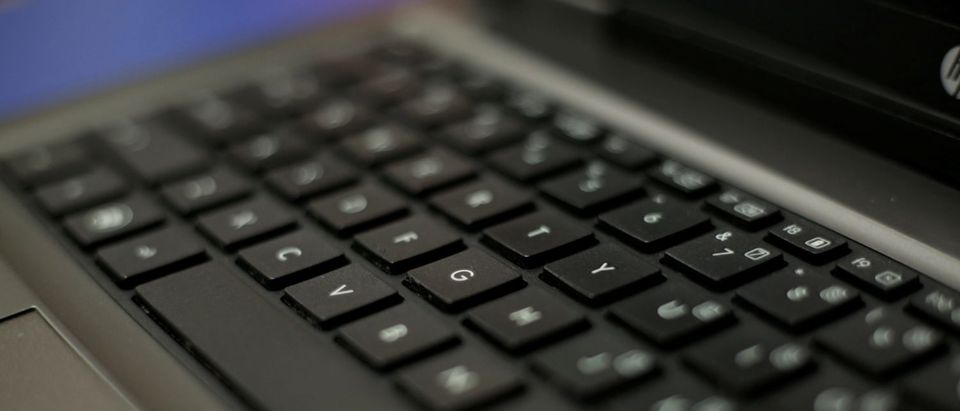Editor’s note: We endeavor to bring you the top voices on current events representing a range of perspectives. Below is a column arguing that some online censorship is necessary to protect against truly harmful speech. You can find a counterpoint here, where the Internet Accountability Project’s Caleb Larson argues that online censorship is unnecessary because the judicial system and internet users effectively filter out hate speech.
The U.S. Constitution’s First Amendment is often cited as the bedrock of our democratic freedoms: “Congress shall make no law … abridging the freedom of speech, or of the press, or the right of the people peaceably to assemble, and to petition the Government for a redress of grievances.”
Americans have long believed that absent these guarantees, our democracy would perish. At the same time, American courts over many decades have held that First Amendment freedoms are not absolute: they are sometimes subject to pragmatic balancing tests that weigh the potential harms from “anything-goes” speech.
The most frequently cited example of a legitimate public-speech restriction is the prohibition against shouting “fire!” in a crowded theater when no fire is present. The intent is to prevent dangerous stampedes. Inciting such a panic may bring civil liability and criminal prosecution.
Since the mid-fifteenth century invention of the printing press, communications technology has grown significantly. The last two centuries alone have witnessed the telegraph, telephone, radio, television, and now, the internet.
As these technologies have evolved, communications have gone from private experiences — a reader sequestered with a book or a two-way telephone call — to mass one-way communications (radio and television), to today’s interactive Facebook, Twitter, Instagram and YouTube, where individuals can reach potentially millions of people through computers and smartphones.
Unlike earlier speech, today’s internet speech can be instantaneous, ubiquitous and anonymous. Those features are sometimes good – and sometimes bad.
The internet’s early days brought new platforms that empowered individuals to expand their friends and family networks in benign, positive ways. The internet’s democratization of information would strengthen democratic institutions (including capitalism) and undermine authoritarian regimes through expanded information channels, spirited public debate and public accountability.
What has also arisen, however, during the last decade, is what New York University professor Jonathan Haidt calls a “digital public square” that now includes billions of people and is too often an unbridled source of public harm. Haidt has written a critically important, must-read article discussing these issues in the May 2022 Atlantic: “Why the Past 10 Years of American Life Have Been Uniquely Stupid.”
Today’s digital “theater” may not be especially “crowded,” but given its ever-expanding global cyberspace capacity, it has become infinitely larger, characterized too often by anonymity, hatred, fraud, disinformation, deceit and – in the realm of political speech – what Haidt calls “dishonesty and mob dynamics.”
The internet has brought much good, including economic empowerment, enhanced productivity and more open political speech such as Egypt’s Arab Spring and Ukraine’s Maidan Revolution. But the Internet has also come to resemble the “Wild, Wild West”: its free-for-all nature can harm individuals and corporations, as well as the civic, social, and political institutions that ensure healthy societies.
Haidt writes that “[w]hen our public square is governed by mob dynamics unrestrained by due process, we don’t get justice and inclusion; we get a society that ignores context, proportionality, mercy, and truth.” The key phrase here is “due process”: it begs the critical question about what kind of “due process” will ensure that healthy society.
Haidt cites political consultant Steve Bannon’s call for a “firehose of falsehood” that “flood[s] the zone with shit,” tactics reminiscent of Russia’s Internet Research Agency,” Haidt adds. His article also cites several left-wing, progressive examples that employ similar tactics.
A current example of the controversial issues at play here is the bankruptcy filing of alleged internet conspiracy theorist Alex Jones. Whatever you think about the merits of Jones’s views, this situation raises directly the issues at the very heart of the internet’s future.
To his credit, Haidt proposes thoughtful, concrete reforms — like more algorithm transparency, user verification and involvement of regulatory bodies — as part of “redesigning democracy for the digital age.”
The above premise, however, should be flipped. We should redesign the digital world to protect our democratic institutions and freedoms, not the other way around.
Government censorship of the internet is not an answer, nor is a wide-open, anything-goes free-for-all appropriate. How do we provide internet oversight and governance that protect against potential harm, unintended consequences and economic externalities?
The tough question was initially posed years ago by Plato: who will guard the guardians?
We need a national conversation about the appropriate norms, laws, regulations and institutions that can ensure a vibrant, healthy, open and trustworthy internet. Since human behavior is involved, bright demarcation lines probably aren’t possible.
Timely, ongoing engagement by individuals, business, government and many other civil-society stakeholders, accompanied by trial and error plus appropriate checks and balances, represent a possible way forward.
Internet regulation will probably resemble the U.S. Supreme Court’s approach to regulating pornography: it’s hard to identify the problems in advance, but we surely know them when we see them.
Charles Kolb served as Deputy Assistant to the President for Domestic Policy from 1990-1992 in the George H.W. Bush White House


